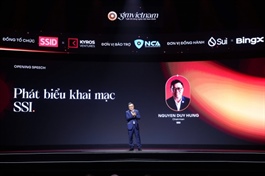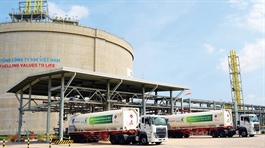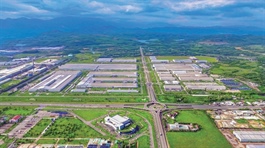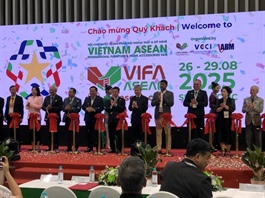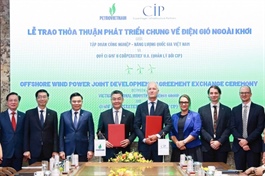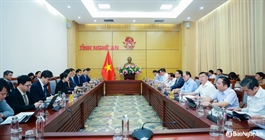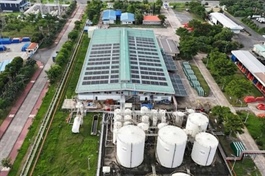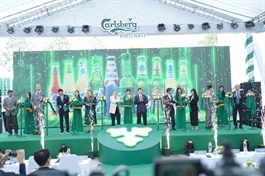Cong Thanh back in play to boost energy security
Cong Thanh back in play to boost energy security
The long-stalled Cong Thanh power project in Thanh Hoa province is being revived and backed by major international investors, opening new prospects for clean energy and power supply security.
After more than a decade of delay, Cong Thanh Thermal Power JSC last week signed a principle agreement with the consortium of Doosan Enerbility from South Korea and Power Engineering Consulting JSC 2 (PECC2) to jointly implement the 4,500MW Cong Thanh liquefied natural gas (LNG) power plant.
The venture will be developed in two phases, with the first 1,500MW stage expected to start construction soon.
Doosan Enerbility vice chairman Yeonin Jung said it has extensive experience in successfully delivering such projects in Vietnam, having worked with PECC2 on major initiatives such as Vinh Tan and Vinh Tan 4 Extension, as well as the ongoing O Mon 4 power scheme.
“Based on today’s cooperation agreement, the consortium will closely coordinate with the owner and partners to move swiftly into the groundbreaking stage and ensure successful implementation. We hope this marks a strong beginning that will pave the way for the success of the Cong Thanh,” he said.
Originally launched in 2011 as a 600MW coal-fired plant with $1.2 billion in investment, the project quickly became a symbol of stagnation. Planned units were never completed, and for more than 12 years the site remained largely deserted, reflecting both financing difficulties and the tightening policy environment against coal power.
The turning point came with the decision to switch fuel from coal to imported LNG and increase capacity to 1,500MW in the first phase. Using advanced combined-cycle gas turbine technology, the venture has been formally included in the latest national power plan, which prioritises lower-emission energy sources to align with the country’s net-zero commitment by 2050.
This transformation raised the project’s total investment to around $2 billion and expanded the land area to nearly 200 hectares, covering the main plant, LNG terminal, cooling water system, and port facilities. Once operational, Cong Thanh LNG is expected to generate about nine billion kWh annually, helping alleviate the risk of power shortages in northern Vietnam from next year.
Beyond the technical redesign, the initiative stands out for its consortium of world-class partners. Oil and gas giant BP is expected to provide LNG supply solutions and port infrastructure, offering stability in a market shaken by the European energy crisis and geopolitical tensions. Private equity firm Actis, with a $12 billion global energy portfolio, brings both capital and international environmental, social, and governance standards, enhancing its long-term sustainability profile.
Meanwhile, General Electric is set to supply its latest high-efficiency gas turbine and combined-cycle systems, enabling flexible operation to complement renewable energy sources. This combination of global expertise is designed to deliver a cleaner, more reliable, and financially viable power source.
South Korea’s SK Group adds another strategic dimension. With nearly $200 billion in market capitalisation and expanding interests in Vietnam, SK sees Cong Thanh not only as a power project but also as part of a wider industrial-energy ecosystem. The conglomerate has proposed integrating LNG ventures with innovation centres, hydrogen production hubs, and sustainable agriculture initiatives across the country, positioning Vietnam as a node in its global green growth strategy.
Despite the strong momentum, Cong Thanh LNG faces significant challenges. Developing LNG infrastructure from scratch requires heavy upfront investment in storage, regasification, and transportation facilities. Grid connection is also complex, with options under study for integration into 500kV substations in Hung Yen, Hanoi, or Long Bien. Global LNG price volatility remains another concern.
At the same time, Vietnam’s regulatory framework for LNG-to-power projects is still evolving. Issues such as long-term power purchase agreements, pricing mechanisms, and investor incentives need to be clarified to reduce uncertainty and unlock financing from international lenders.
- 11:09 27/08/2025







